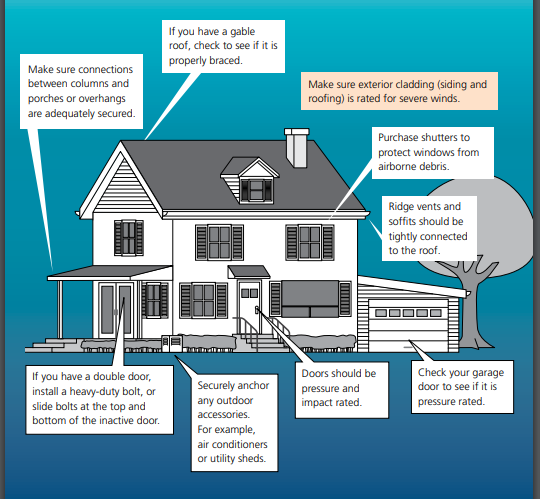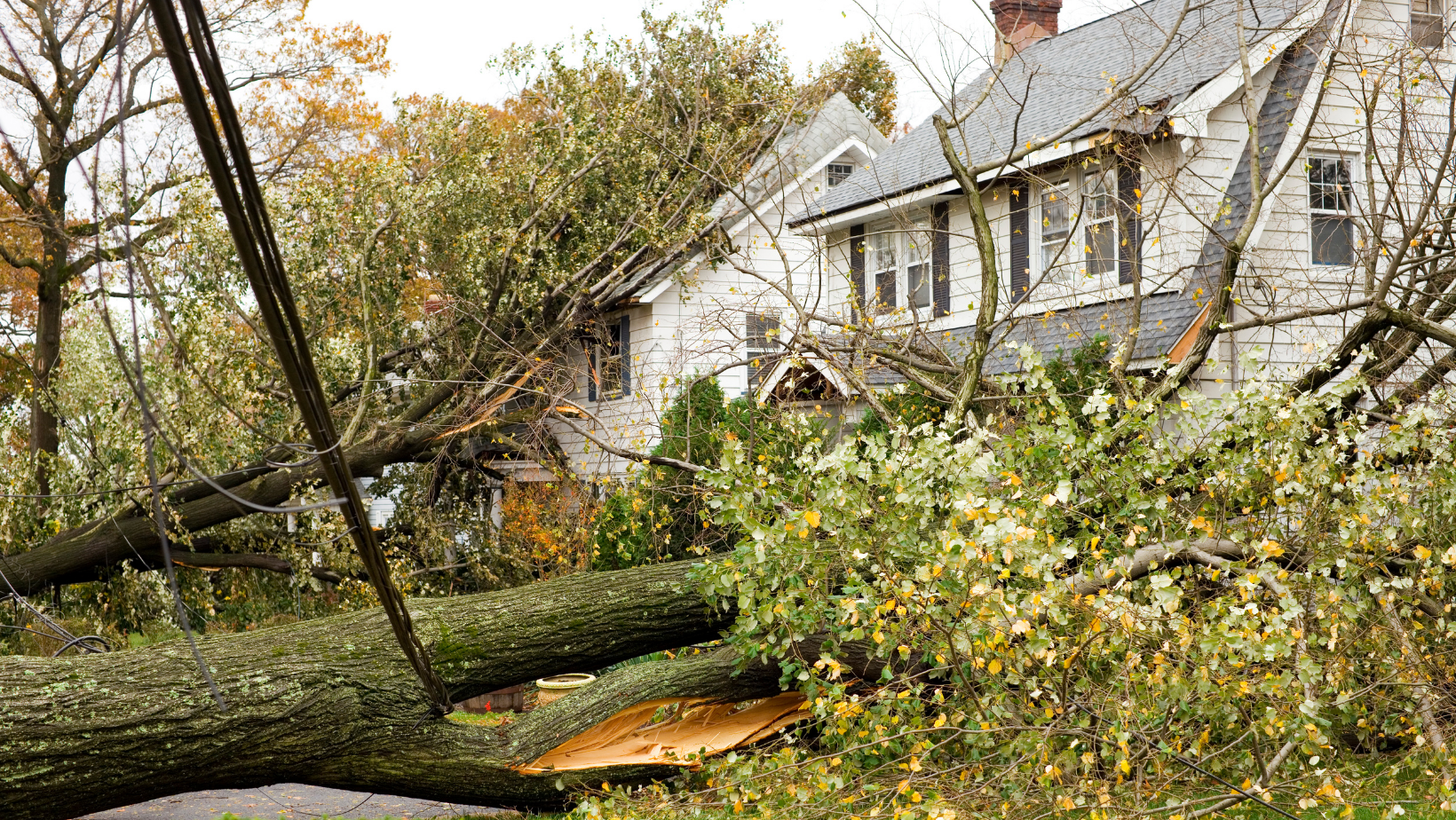Many Ontario residents were caught off guard and impacted by the windstorm event this past weekend. Here is some information that could be beneficial to know in case we’re hit by another sudden summer storm.
There are several types of storms that can cause wind damage, including Tornado, Hurricane, Thunderstorm, Hailstorm, Microburst, Derecho, and Nor’easter.
Generally, most damage caused by wind in any type of storm situation is covered by a homeowners policy, such as damage to your roof, windows, siding, fences and more.
Here in southwestern Ontario, the most likely time for any of these events to occur is between May and September, with peak months in June and July. While homeowners cannot predict violent wind activity, you can take steps to protect yourself, your family, and minimize damage to your home.
What to do if you know a storm is coming:
- Understand your home’s vulnerabilities. It is incredibly important that you are educated and aware about your home’s vulnerabilities to the threat of severe wind. Ask your municipal government for advice on how to best protect your home – towns and cities located in severe wind regions will have knowledge and expertise to share. Similarly, consider having a building inspector evaluate your home and offer insight about your home’s capacity to resist or withstand extreme winds.
- Remove any dead trees and large tree branches/limbs from your property. When performing maintenance on trees, please make sure you are doing so safely or contact a professional tree-care service or arborist.
- Protect your roof. This can be done easily by simply walking a short distance away from your home with a pair of binoculars. Take a look at the roof and make note of any damage you see (loose shingles, loose tiles, etc.) and have them repaired as soon as possible. You can also inspect your attic for areas where wiring enters the roof and confirm that all openings are properly sealed. Finally, take a look at your gutters and downspouts to ensure that they are secured properly to your home.
- Inspect your siding. Fix any deterioration that you notice, such as loose siding and unsealed siding around windows, doors, and places where wires enter the home.
- Clean up projectiles. Any outside items that are not secured or attached to your home are at risk of becoming projectiles that could end up causing additional damage or even injury. Evaluate your outdoor space and make sure that nothing is at risk of flying away such as lawn chairs, toys, hanging flower baskets, and much more.
- Re-locate your vehicle. If you are able, move your vehicle to a garage, carport, or another covered location that will protect it from high winds, projectiles, and other falling debris. If you don’t have access to a covered location, make every effort to park your vehicle as far away from large trees as possible so that falling branches and limbs do not cause damage.
Additional recommendations from the Institute of Catastrophic Loss Reduction:

What does your insurance cover?
Every insurance policy is different, but most damage caused by wind is typically covered. However, it is important that you check with your broker to ensure that you are prepared for the worst in any given situation. Make sure that you are aware and understand your coverage for:
- Damage caused by fallen tree branches and limbs
- Damage caused by falling debris and projectiles
- Damage to vehicles
- Damage to your refrigerator, freezer and contents (if there is a power interruption)
- Additional living expenses (if you are unable to stay in your home due to damage)
Not every policy will cover each of these areas; reach out to your broker today to learn the ins and outs of your coverage so that you are prepared for whatever weather this summer might throw your way.
Sources:
- https://www.travelers.com/resources/home/maintenance/does-homeowners-insurance-cover-wind-damage
- https://www.travelers.com/resources/home/maintenance/tree-maintenance-and-care
- http://www.ibc.ca/on/resources/media-centre/media-releases/insurance-advice-and-information-following-may-21-severe-storm-in-ontario-and-quebec
- https://www.iclr.org/
